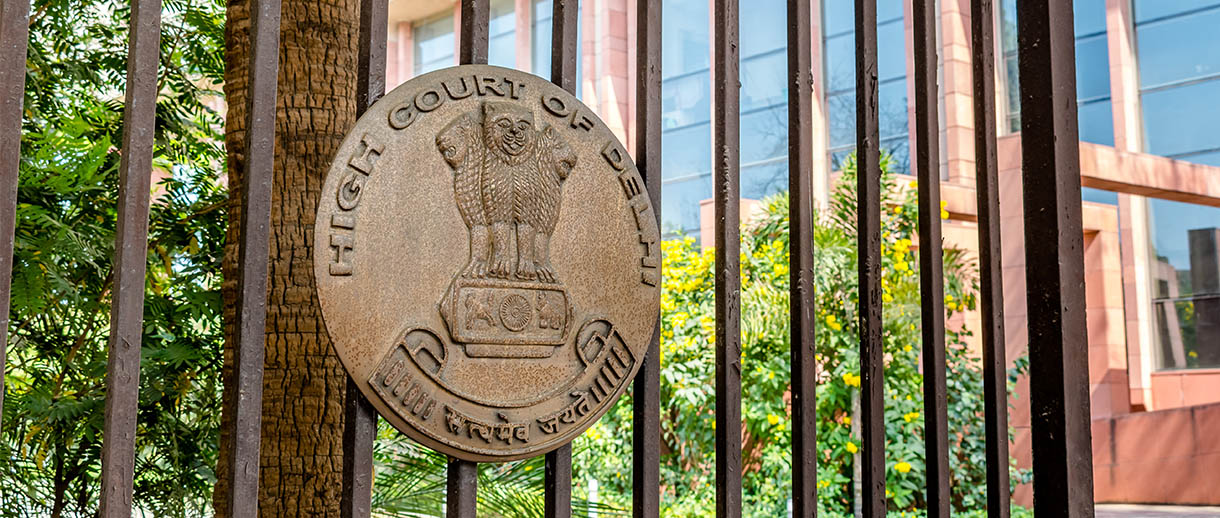
The Delhi High Court has recently pronounced an important judgement on the liability of third party funders in an arbitration in the case of Tomorrow Sales Agency (P) Ltd. v. SBS Holdings, Inc.1 Third party funding is the process by which a party who is otherwise not connected to the proceedings, funds a dispute in return of a financial gain upon the success of the claim.
Background
In the present case, Tomorrow Sales Agency Private Limited (“TSA“), a non-banking financial company, had funded the claimants (namely, Anant Kumar Choudhary, Vivek Shukla, Pravin Chandra Rai and SBS Transpole) (“Claimants“) through a Bespoke Funding Agreement (“BFA“), to pursue their claim for recovery of damages against SBS Holdings Inc. (“SBS“) before the Singapore International Arbitration Centre (“SIAC“). However, TSA was neither a party to such arbitration nor the arbitration agreement. The dispute was decided in the favour of SBS, and an arbitral award was pronounced in this regard (“Arbitral Award“). TSA was not a party to this Arbitral Award. SBS claimed that TSA was liable to pay the amount awarded and sought interim measures to secure such amount.
Application filed before the Delhi High Court
SBS filed an application under Section 9 of the Arbitration and Conciliation Act, 1996 (“Act“) before the Delhi High Court.
Judgement of the Single Judge
Before the Single Judge, SBS claimed that the Claimants did not have the wherewithal to satisfy the Arbitral Award. It was contended that TSA had not merely funded the arbitral proceedings but had substantially controlled it. SBS claimed that: (i) the BFA clearly indicated that the budget plan could not be exceeded without the prior consent of TSA; (ii) TSA had absolute discretion to cease funding the arbitral proceedings if the Arbitral Tribunal found that SBS was not a proper party to the arbitral proceedings; (iii) no settlement or part settlement could be entered into by the Claimants without informing TSA; and (iv) TSA had an exclusive, unfettered right on the damages recovered and would take precedence over any right of the Claimants. SBS claimed that TSA funded the arbitral proceedings for its own profit and contended that it was a ‘real party’ to the arbitral proceedings.
The Court accepted that SBS had, prima facie, established that TSA had a vested interest in the outcome of the arbitral proceedings, having funded the Claimants for benefiting from the arbitral proceedings. It was held that a party, having funded the litigation for gain, could not escape the liability in case the result was contrary to its expectations. The Single Judge noted that the termination of the BFA as a result of the claimants being unsuccessful in their claim would not affect the rights of SBS, as the BFA would continue to be operative till the delivery of the Arbitral Award and the costs recoverable are part of the Arbitral Award. On the basis of the aforesaid reasoning, the Single Judge issued the impugned order (“Order“) directing the Claimants and TSA to file an affidavit disclosing their fixed assets and bank accounts along with a credit balance held in India or any other jurisdiction and further restrained the Claimants and TSA from creating any third party interest/right/title in respect of any unencumbered immovable assets for a sum as awarded in favour of SBS. TSA filed an appeal before the Division Bench under Section 37 of the Act.
Judgement of the Division Bench
The Division Bench allowed the appeal while setting aside the Order to the extent that it was directed against TSA for disclosure of assets, furnishing security, and restraining it from alienating or encumbering its assets.
The Court analysed various decisions in which the Supreme Court has accepted that a non-signatory can be bound by the arbitration agreement. However, the Court did not deem it necessary for it to further delve into the question whether TSA, being a non-signatory, could be compelled to join the arbitral proceedings or be bound by the arbitration agreement. The Court noted that a third party may be bound by the arbitral award only if it has been compelled to arbitrate and is a party to the arbitration proceedings. Further, even a signatory to an arbitration agreement against whom an arbitration agreement is not invoked and who is not joined as a party to the arbitral proceedings, would not be bound by the arbitral award. Thus, there is no question of enforcing an arbitral award against a non-signatory, who is not a party to the arbitral proceedings.
The Court made the following observations:
- TSA could not be joined as a party to the arbitral proceedings under the SIAC Rules and that SBS had made no attempt to compel TSA to join the arbitral proceedings or secure any order against TSA before the Arbitral Tribunal.
- The Court found that none of the clauses of the BFA imposed any obligation on TSA to fund an adverse award.
- Since TSA was not a party to the Arbitral Award, it could not be considered a judgment-debtor under the Arbitral Award if it were to be enforced as a decree, as required under Section 36(1) of the Act.
- In the given circumstances, an application under Section 9 of the A&C Act to secure the disputed amount against TSA was not maintainable.
- No rules have been framed which contemplate recovery of costs from persons who are not parties to the suit/action and that there is no procedure for impleading third parties for the limited purpose of determining the costs.
Conclusion
The Court recognized the vital role of third party funders in ensuring access to justice. Without third party funding, individuals with valid claims would be unable to pursue recovery for legitimately owed amounts. However, it is crucial for third party funders to have a clear understanding of their potential liabilities. They should not be burdened with liabilities that they have not undertaken or of which they are unaware. In light of this case, it becomes imperative to ensure that funding agreements are carefully drafted, clearly defining the funder’s liability in the event of an adverse arbitral award. This judgment represents a significant step forward and fills a crucial gap, as there are currently no specific laws in India that regulate third party funding for litigation and arbitration.
1 FAO(OS)(COMM) 59/2023 and CM Nos. 14793/2023 & 14794/2023
















